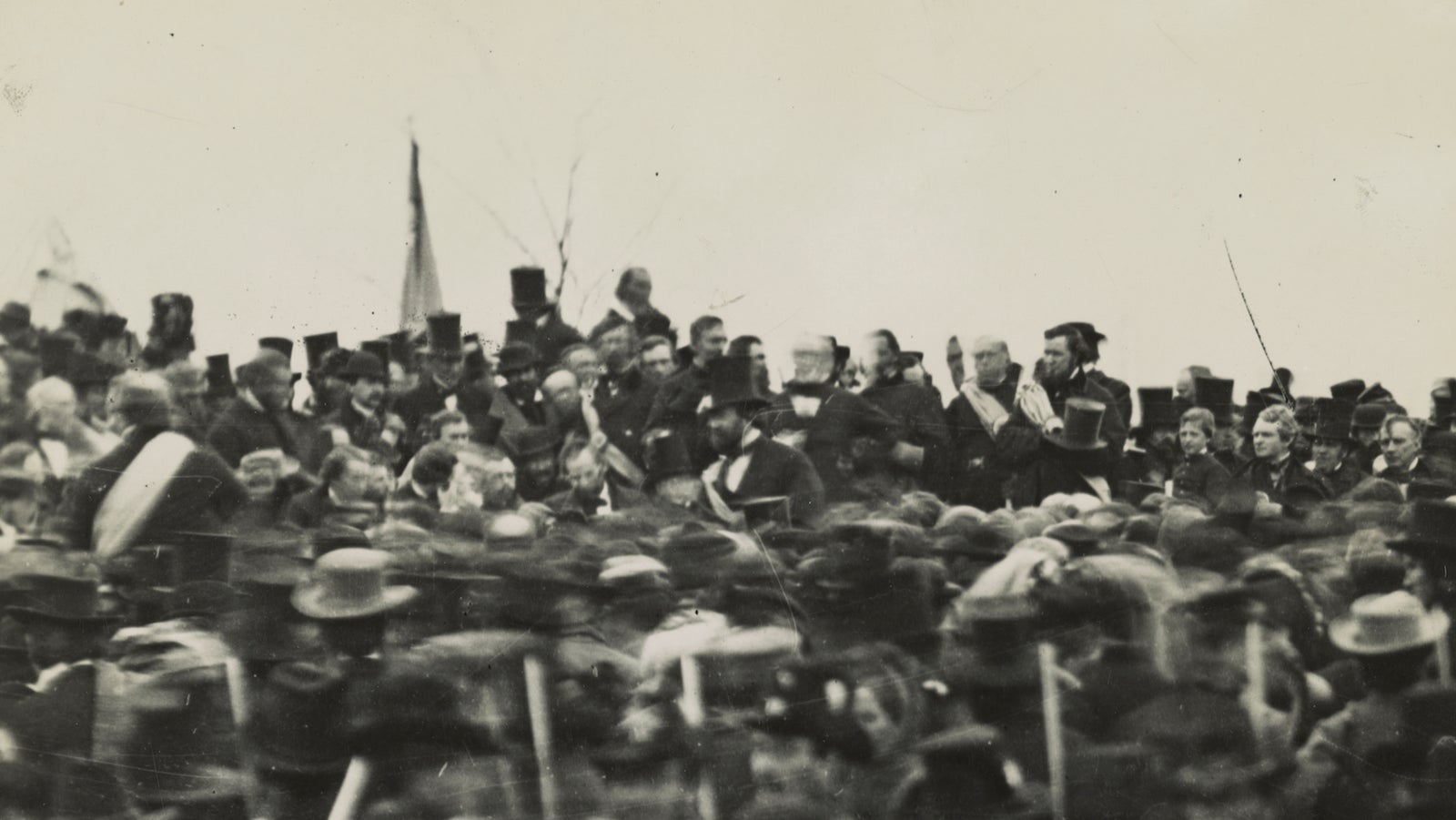Hillary Clinton’s public-speaking style has a lot in common with Abraham Lincoln’s
One hundred and fifty three years ago (that is, seven score and 13 years ago), Abraham Lincoln delivered a speech that would ring forward through time and space to become one of the best-known orations in history. Broadcast to the world via the radically innovative technology of the telegraph, the wide reach of his brief speech made him the first president to go viral.


One hundred and fifty three years ago (that is, seven score and 13 years ago), Abraham Lincoln delivered a speech that would ring forward through time and space to become one of the best-known orations in history. Broadcast to the world via the radically innovative technology of the telegraph, the wide reach of his brief speech made him the first president to go viral.
Implicit in Lincoln’s Gettysburg address is a question posed to the American people: Will this great experiment we call America work? Can the proposition of all people being created equal have a place in this world, beyond the dreams of philosophers?
America is not currently “engaged in a great civil war,” but it nevertheless faces this question as a nation. Political polarization has been increasing over the last 10 years, and it has brought the country to a frighteningly divisive moment in history. Unabashed white supremacism has somehow again found a megaphone. Internet trolls are a legitimate influence on the outcome of America’s leadership. Campaign finance has run rampant, making citizens feel powerless. Countless films, podcasts, policy platforms, and protests across the nation have revealed the country’s racist roots, which are still deeply embedded in its culture and public systems.
Abraham Lincoln—a Republican man of letters—used words to heal this country’s divisions during the Civil War. So how have Hillary Clinton and Donald Trump used their words in today’s schismatic landscape?
On Sept. 26, the two US presidential candidates met face-to-face in a tradition that puts words and ideas center stage. Questions that touched on the divides in the nation were not in short supply. Debate moderator Lester Holt started with a question about economic inequality. Clinton made a personal appeal to the audience—”I want us to invest in you”—with emphasis on raising the minimum wage, equal pay for women, and moving toward debt-free college. Trump focused on the dangers of outsourcing American jobs to places like China and Mexico, his view that reducing business taxes would be good for the economy, and the state of infrastructure, stating that, “Our airports are like from a third-world country.“
The history of using debates to judge the character of a president can be traced back to Lincoln’s election to presidency. Lincoln’s rhetoric formed the foundation for contemporary American speech writing, influencing the thinking of Democrats and Republicans alike. With a lawyer’s training, his approach to candidacy—and to leading—was to build and present a logical case, striking home crucial moments of a speech with the propitious encouragement of pathos.
Clinton takes a humanist approach, framing the country’s challenges as an opportunity for growth. In this regard, Clinton shows herself to be more Lincolnian than Trump. Trump, by contrast, tends toward a cynical tone in his speeches, and his formal approach to public speaking is to ignore all formal approaches. The premise of “Make America Great Again” as a slogan is, after all, contingent on emphasizing the ways in which the country is currently doing poorly, and he often criticizes establishment politics. What would America’s forefathers think of that?
Throughout the campaign, Clinton often takes time in her speeches to appeal to people’s sense of civic duty and remind us of our place in the larger context of history. She uses media appearances in many ways: as an opportunity to explain her substantial record and how it influences her policy stance; to lift up colleagues that have supported and endorsed her, even when they are on the other side of the aisle; and to describe her goals for what she hopes to accomplish during her presidency. In her speeches, like the one she delivered at this year’s Democratic National Convention, she uses the language of hope and optimism to try and inspire us to listen to, as Lincoln would say, the “better angels of our nature.”
On Sept. 25, the New York Times editorial board endorsed Hillary Clinton for president. “A lifetime’s commitment to solving problems in the real world qualifies Hillary Clinton for this job,” the Times declared, “and the country should put her to work.” And the first candidate the Times ever endorsed? Abraham Lincoln. Alluding to his prowess as a rail-splitter, the Times described the occupation as one that “teaches a man to strike heavy blows, and to plant them just where they are needed.”
These are dangerous times, and it will take a skilled leader to bring this country’s people to a common ground. It will be soon up to voters to decide: Which of these candidates do you think can best remain “dedicated to the great task remaining before us?” Who can best unify the people to lead this country out of turmoil and toward a just and equitable future?
By the anniversary of the Gettysburg address in November, we’ll know who the American people have chosen.